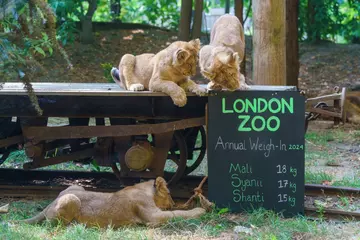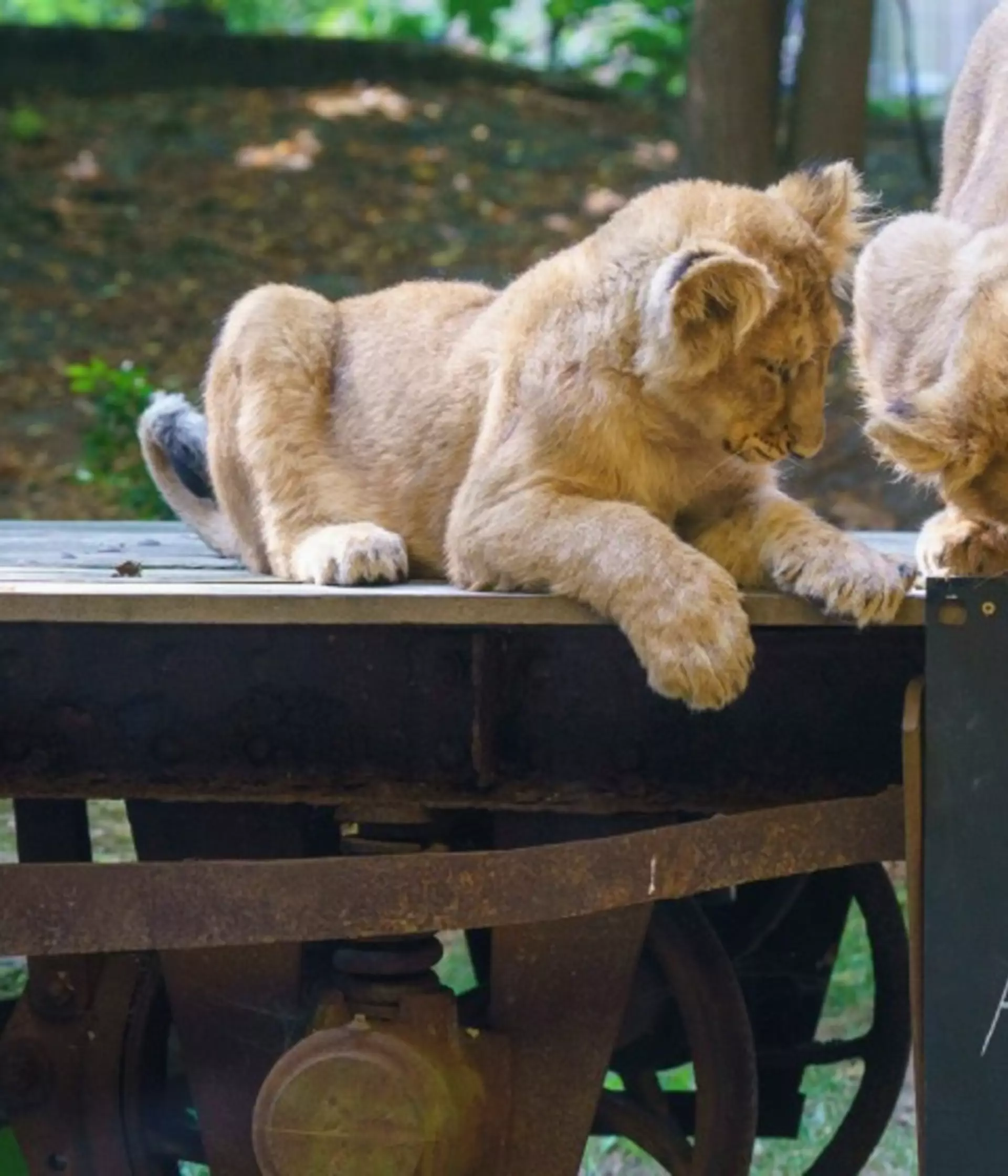
Penguins and a trio of Asiatic lion cubs are just some of the animals who had their vital statistics recorded at our 2024 annual weigh-in on Monday 19 August, as we bring over 10,000 animals and almost 400 species to the weighing scales.
Among those weighed were 10 Humboldt penguin chicks, born at the Zoo in spring. The Vulnerable species (Spheniscus humboldti), over 60 of whom live at London Zoo, didn’t need much encouragement to be weighed, each waddling quickly on to the scale in pursuit of their breakfast: a bucket of fish. Penguin keeper Jessica Ray noted each weight, ready to be added to the global zoo information database.

Patient zookeeper Mick Tiley encouraged the Zoo’s pair of Bactrian camels (Camelus bactrianus), Genghis and Neomie, onto a giant weighboard, one at a time, with each clocking in at around 682kg, making them two of our heaviest animals.
Three Endangered Asiatic lion cubs, born at the zoo on 13 March 2024, joined the annual weigh-in for the first time. The cubs are weighed regularly by zookeepers to monitor their growth and development and were today given a scented board detailing their latest measurements to investigate. The trio, named Mali, Syanii and Shanti, weigh 17kg on average, with female cub Shanti weighing a little less than her big brothers.

Next up were our drove of Mangalitsa pigs (Sus scrofa domesticus), immediately identifiable by their coat of abundant woolly hair. The pigs were encouraged onto the scales by zookeeper Owen Shrewsbury and some leftover breakfast. Olive was first onto the scale, with keepers recording a weight of 43.5kg.
Weighing our animals regularly is an important method for monitoring the development of the animal infants who call London Zoo home, including two Western lowland gorilla babies born at the zoo this year: Juno, born to mum Mjukuu, and Venus, born to mum Effie.
The annual weigh-in is an opportunity for our zookeepers to make sure the information they’ve recorded is up-to-date and accurate. Each careful measurement is added to the Zoological Information Management System (ZIMS), a database shared with zookeepers across the globe to help compare important information on thousands of Threatened, Endangered and Critically Endangered species.

London Zoo’s Head of Zoological Operations, Angela Ryan, said: “We regularly record the vital statistics of every animal at the zoo, from the tallest giraffe to the small White tree frogs in our new Secret Life of Reptiles and Amphibians habitat.
“This allows us to make sure that all the animals under our care are healthy, eating properly, and developing at the appropriate rate. For some species, weighing is the only way to detect and track a pregnancy, which is especially crucial for the many endangered animals at London Zoo that are involved in global conservation breeding efforts.”
Zookeepers use many clever tactics to entice the animals over to their scales, factoring in the different personalities and temperaments of each animal. While our pair of Bactrian camels have no qualms slowly walking on to a giant camel-sized scale, the colony of Humboldt penguins require a little more encouragement with a bucket of fish – each penguin lining up for its morning feed.

Angela added, “By sharing this vital data with other zoos and conservationists worldwide, we can all use the shared knowledge to better care for the species we’re striving to protect.”
Visitors this summer can see over 10,000 animals and almost 400 species, with every visit helping to support the conservation of species and their habitats around the world.
